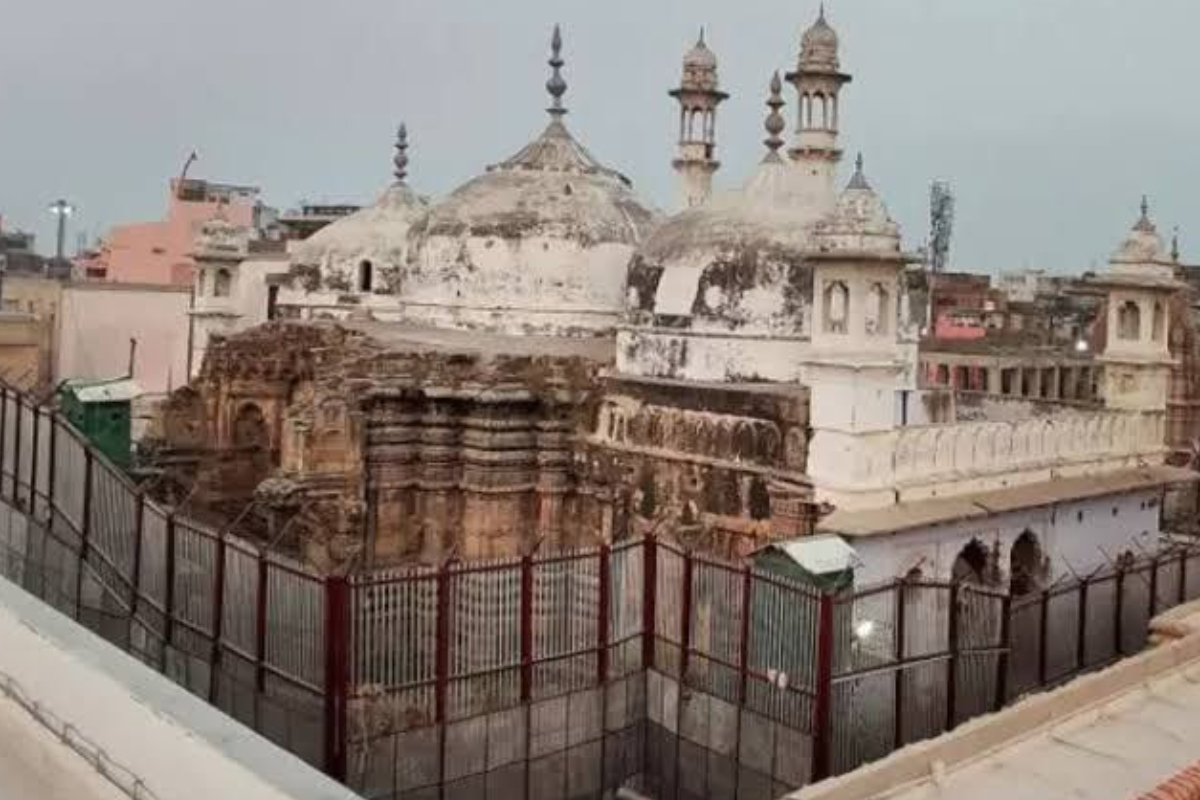NEW DELHI: On Monday, the Allahabad High Court rejected the appeal from the Gyanvapi Mosque committee challenging the Varanasi district court’s ruling permitting prayers in a basement within the Gyanvapi mosque compound. Justice Rohit Ranjan Agarwal of the Allahabad HC delivered the verdict.
“After going through the entire records of the case and after considering arguments of the parties concerned, the court did not find any ground to interfere in the judgment passed by the district judge dated 17.01.2024 appointing DM, Varanasi as receiver of the property as well as the order dated 31.01.2024 by which the district court had permitted Puja in the Tehkhana,” Justice Agarwal said while pronouncing its verdict.
Also Read: We want port for crucial Red Sea access: Zemedeneh Negatu on Ethiopia-Somaliland deal | EXCLUSIVE
Gyanvapi mosque “The judge dismissed the pleas that the Muslim side had filed against the District Judge’s order…It means that the puja will continue as it is. District Magistrate will continue as the Receiver of the ‘Tehkhana’…They (the Muslim side) can go for a review of the decision. Puja will continue,” he informed news agency ANI.
Another lawyer, Vishnu Shankar Jain, representing the Hindu party, stated, “Today, the Allahabad High Court has rejected the initial appeal lodged by the Anjuman Intezamia against the rulings of January 17 and 31. As a result, the ongoing worship in the ‘Vyas Tehkhana’ of the Gyanvapi complex will persist. Should the Anjuman Intezamia decide to approach the Supreme Court, we will submit our caveat to the highest court,” he explained.
On January 31, the Varanasi court decreed that the Hindu party is permitted to conduct prayers in the southern basement of the Gyanvapi mosque, known as the ‘Vyas Tehkhana’. The court, moreover, instructed the district magistrate to organise arrangements for the worship ceremony, with a designated priest chosen by the Shri Kashi Vishwanath Temple Trust.
Also Read: New criminal laws replacing IPC, CrPC, Evidence Act set to enforce starting July 1
Subsequently, on February 1, the Anjuman Intezamia Masajid Committee, responsible for overseeing the Gyanvapi Mosque in Varanasi, submitted a petition to the Allahabad High Court, contesting the ruling of the Varanasi court. This action followed shortly after the Supreme Court declined to expedite the hearing of the mosque committee’s petition.
There are four subterranean chambers (tahkhanas) in the mosque, one of which remains under the ownership of the Vyas family, who previously lived there.
Nevertheless, as per the mosque committee, the ‘Vyas Tehkhana’ falls under their jurisdiction as it is considered a part of the mosque premises. They assert that neither the Vyas family nor any other entity has the authority to conduct worship activities within the Tehkhana.
Meanwhile, the Hindu party asserted that the Vyas family performed religious rituals in the basement until 1993, after which they stopped following a directive from the state government.
Previously, AIMIM president Asaduddin Owaisi criticised the Varanasi court’s ruling permitting Hindu devotees to conduct prayers within the mosque complex, labelling it as a “breach of the Places of Worship Act.”
Also Read: Pakistan polls 2024: A tragicomic spectacle
“The judge who gave the decision was his last day before retirement. The judge appointed the District Magistrate as receiver on January 17 and finally, he has directly given the verdict. He said that no prayers had been offered since 1993.
“It has been 30 years. How does he know there is an idol inside? This is a violation of the Places of Worship Act…He has ordered to open the grills within seven days. 30 days should have been given to make an appeal. This is a wrong decision,” he said.











